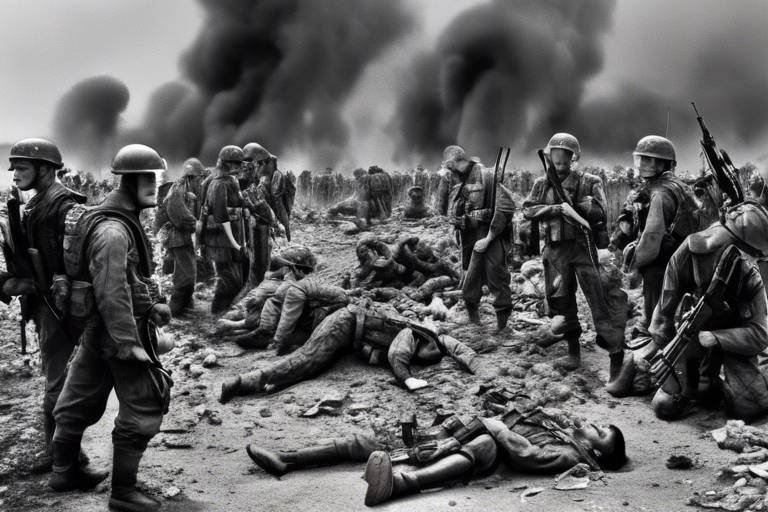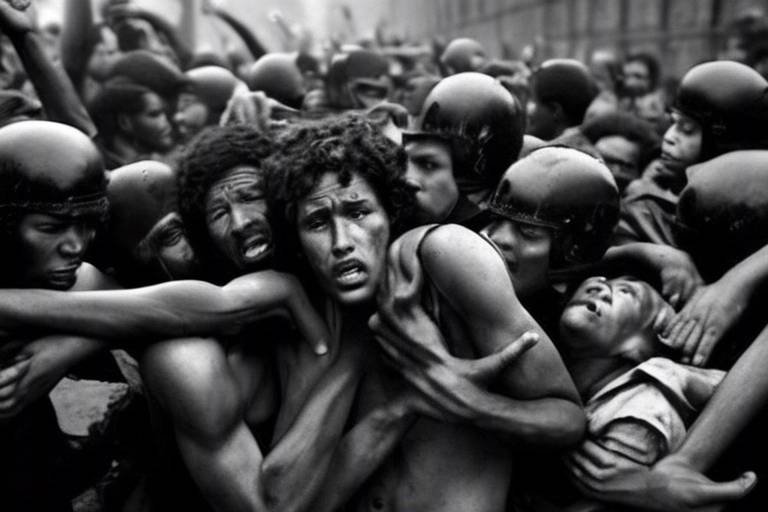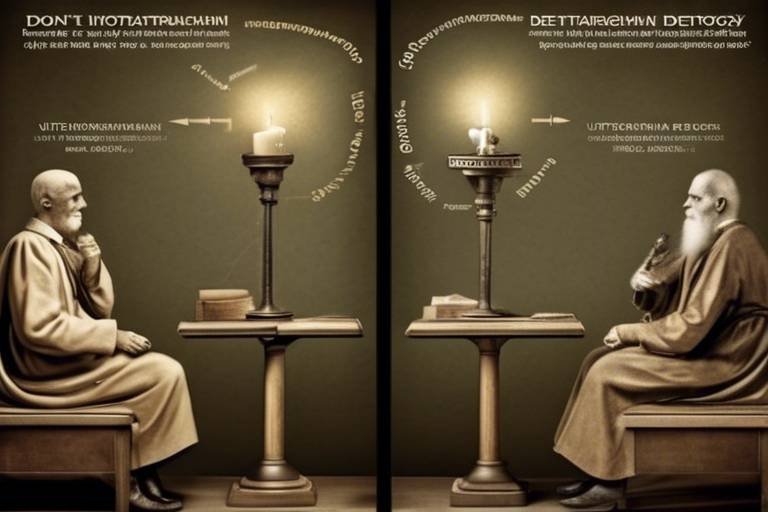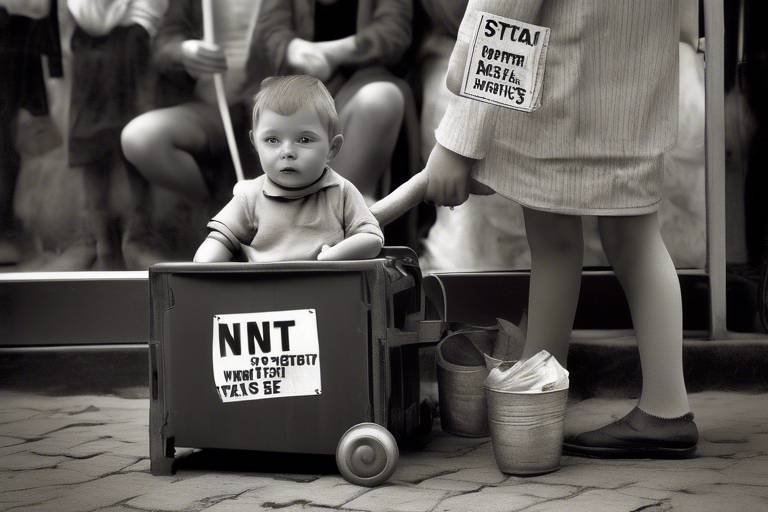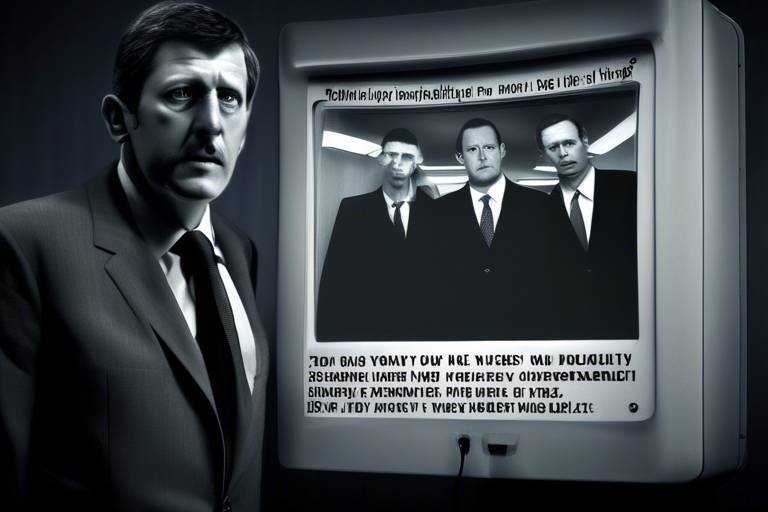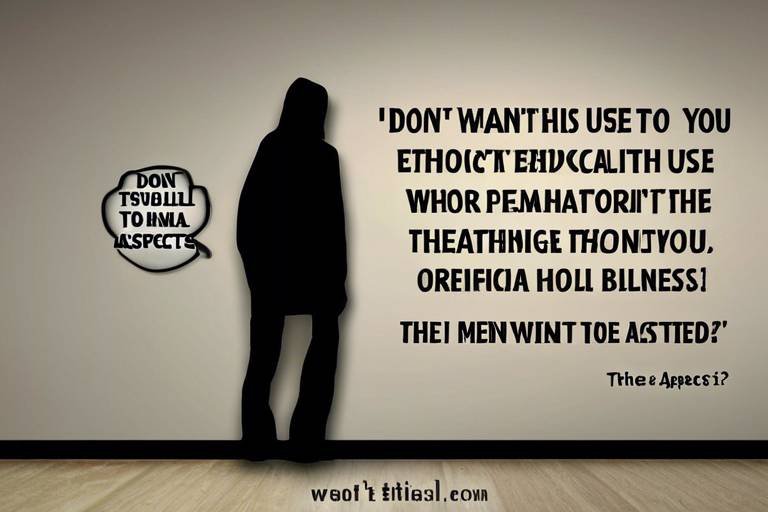Why Does the Morality of War Continue to Confound Us?
War has always been a subject of intense debate, not just for its immediate consequences but also for the profound moral dilemmas it presents. The question of whether war can ever be justified is one that has perplexed philosophers, politicians, and the general public alike throughout history. As we delve into the complexities of this topic, we find ourselves grappling with a myriad of ethical considerations. Why do we struggle to find a clear answer when it comes to the morality of war? Is it because the stakes are so high, or is it that our understanding of right and wrong becomes blurred in the chaos of conflict?
To begin with, the morality of war is often viewed through the lens of historical context. Different eras have seen varying justifications for war, influenced by cultural, political, and philosophical shifts. For instance, during the Middle Ages, wars were often justified through religious fervor, while in modern times, we see a shift towards humanitarian justifications. This evolution raises questions: Are our moral standards in flux, or do they reflect deeper, more consistent principles that we fail to recognize?
Moreover, the advancement of technology has introduced new layers of complexity to the morality of war. The rise of drone warfare and cyber-attacks has transformed traditional battlefields, leading to ethical dilemmas that challenge our established moral frameworks. Are drone strikes, which can minimize risks to soldiers, morally superior to conventional warfare, or do they desensitize us to the loss of civilian lives? This is a question that continues to stir heated debates among ethicists and military strategists alike.
Furthermore, public perception plays a crucial role in shaping our understanding of the morality of war. The media, with its powerful narrative-building capabilities, influences how wars are perceived by the masses. Images of conflict can evoke strong emotional responses, leading to a dichotomy in public opinion. On one hand, we may view military intervention as a necessary evil to protect human rights; on the other, we may see it as an imperialistic endeavor. The challenge lies in discerning fact from fiction and understanding how cultural narratives shape our moral judgments.
Ultimately, the morality of war is not a black-and-white issue. It is a tapestry woven from historical events, ethical theories, and contemporary challenges. As we continue to explore these dimensions, we must ask ourselves: How can we reconcile our moral beliefs with the harsh realities of armed conflict? The answer may not be straightforward, but it is a question worth pondering as we navigate the complex landscape of war and morality.
- What is Just War Theory?
Just War Theory is a philosophical framework that outlines the conditions under which war can be morally justified. It includes principles such as jus ad bellum (justice of war) and jus in bello (justice in war).
- Why is public perception important in the context of war?
Public perception shapes the moral landscape of war by influencing political decisions and societal attitudes towards military actions. Media representation plays a significant role in this process.
- How do cultural narratives affect our understanding of war?
Cultural narratives shape collective memory and societal values, influencing how we perceive the morality of war and the actions taken during conflicts.

The Historical Context of War Morality
Understanding the evolution of war morality is akin to peeling back the layers of an onion; each layer reveals a deeper complexity that has been shaped by a myriad of historical events and philosophical thoughts. Throughout history, societies have grappled with the ethical implications of warfare, leading to a rich tapestry of theories and beliefs that continue to influence our understanding today. From ancient civilizations to modern nation-states, the morality of war has been debated, redefined, and often contested.
In ancient times, the concept of war was often intertwined with divine will. Many cultures believed that their gods sanctioned warfare, which provided a moral justification for conflict. For instance, the Greek philosopher Plato argued that war could be justified if it served the greater good of the state, while Aristotle emphasized the importance of virtue in warfare. These early philosophical discussions laid the groundwork for what would later become known as Just War Theory, a framework that seeks to balance the necessity of war with ethical considerations.
As we moved into the medieval period, the rise of Christianity introduced new moral frameworks to the discourse on war. Thinkers like St. Augustine and St. Thomas Aquinas contributed significantly to Just War Theory, emphasizing that wars must be fought for just causes and with right intentions. Their ideas were revolutionary, suggesting that moral reasoning should guide military actions rather than mere political expediency. This shift marked a pivotal moment in how societies viewed the ethics of war, leading to a more structured approach to evaluating the morality of armed conflict.
The Enlightenment further transformed the conversation around war morality. Philosophers such as Immanuel Kant introduced concepts of universal ethics and human rights, arguing that the dignity of individuals must be respected even in times of war. This period also saw the emergence of international law, which aimed to regulate the conduct of states during warfare, thereby adding another layer of moral obligation to the practice of war. The establishment of treaties and conventions, such as the Geneva Conventions, sought to protect those who are not participating in hostilities, reinforcing the idea that even amidst chaos, there are ethical standards that must be upheld.
As we moved into the 20th and 21st centuries, the landscape of war morality became increasingly complex. The advent of technology and the rise of non-state actors, such as terrorist organizations, challenged traditional notions of warfare and morality. The ethical implications of nuclear weapons, drone strikes, and cyber warfare have prompted intense debates about the justification of military actions and the protection of civilian lives. Today, we find ourselves at a crossroads, where historical perspectives on war morality must be reconciled with contemporary ethical dilemmas.
In summary, the historical context of war morality is a rich and multifaceted narrative that reflects humanity's ongoing struggle to reconcile the necessity of conflict with ethical considerations. As we continue to navigate this complex terrain, it is crucial to reflect on the lessons of the past and apply them to our current understanding of the morality of war.
- What is Just War Theory? Just War Theory is a philosophical framework that evaluates the morality of warfare, focusing on the conditions under which war can be justified and the ethical conduct during war.
- How has the morality of war evolved over time? The morality of war has evolved from divine justification in ancient cultures to structured ethical theories in the medieval period, influenced by religious and philosophical thought, and further complicated by modern technological advancements.
- What role does international law play in war morality? International law establishes legal standards for the conduct of war, aiming to protect non-combatants and regulate military actions, thereby adding a layer of moral obligation to state behavior in conflict.
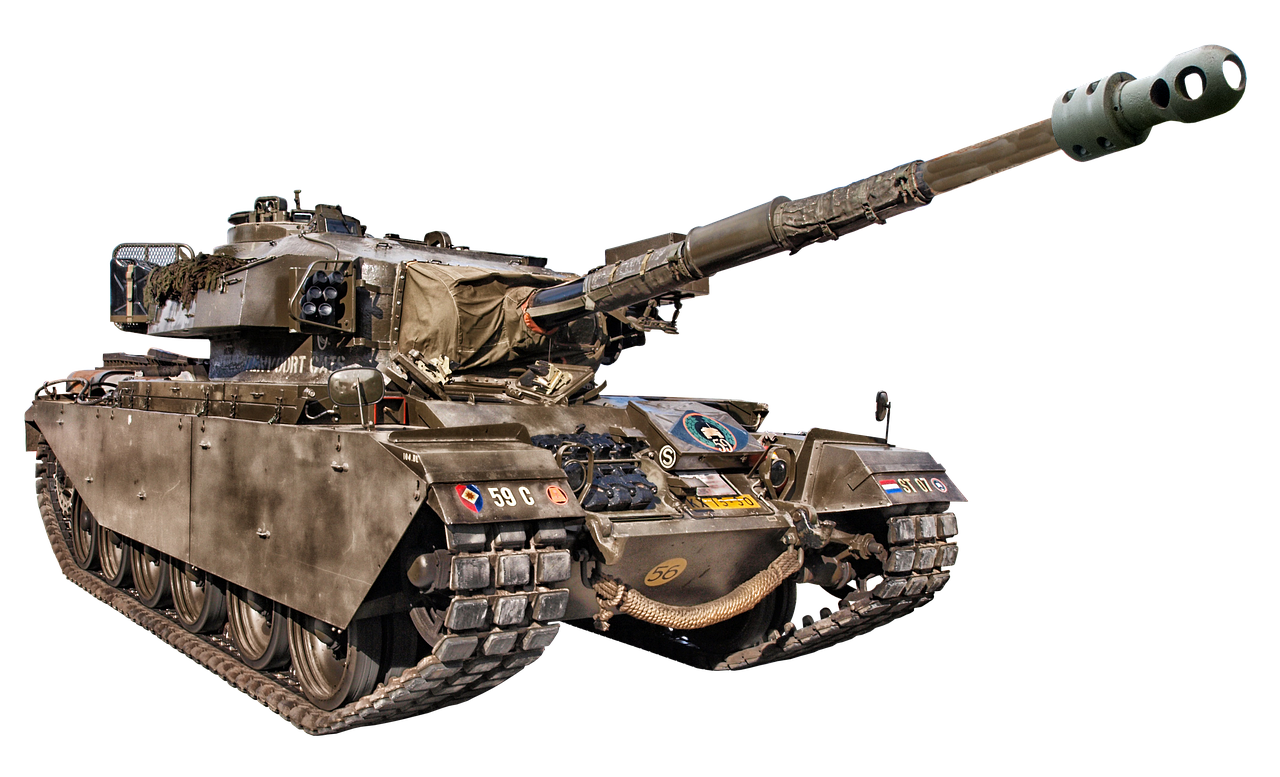
Just War Theory Explained
The concept of Just War Theory has been a cornerstone in the moral evaluation of warfare for centuries. It provides a structured framework that helps societies assess the morality of engaging in war and the conduct during it. At its core, Just War Theory seeks to answer a fundamental question: when is it permissible to go to war, and how should one conduct themselves during that war? This theory is not just a relic of the past; it continues to influence contemporary discussions about military ethics and the complexities of modern warfare.
To break it down, Just War Theory is primarily divided into two main categories: jus ad bellum (the justice of going to war) and jus in bello (the justice of conduct within war). Each of these components contains specific principles that help to guide moral reasoning in the context of armed conflict. Understanding these principles is crucial for grasping the ongoing debates about the morality of war.
At the heart of Just War Theory are several key principles that dictate when a war can be deemed just. These include:
- Just Cause: There must be a legitimate reason for going to war, such as self-defense or protecting human rights.
- Right Intention: The intention behind the war must align with the just cause, aiming for peace and justice rather than selfish gains.
- Proportionality: The anticipated benefits of the war must outweigh the expected harm and suffering caused by it.
- Last Resort: All non-violent options must be exhausted before resorting to armed conflict.
These principles help to ensure that a nation’s decision to go to war is not taken lightly and is rooted in ethical considerations. However, applying these principles in real-world scenarios can be incredibly challenging, as the complexities of international relations and human behavior often muddy the waters.
When we talk about jus ad bellum, we delve into the criteria that must be met for a war to be considered justly initiated. This includes examining the motivations behind the war and whether they align with the principles outlined above. For instance, a government may argue that they are entering a war to protect their citizens, but the reality may be more complicated. Factors such as political pressure, economic interests, or historical grievances can cloud these motivations. This raises a crucial question: how do we ensure that the justifications for war are genuinely ethical and not merely convenient excuses?
Moreover, the challenges of applying these criteria in real-world scenarios cannot be overstated. The political landscape is often fraught with misinformation and propaganda, making it difficult for the public and decision-makers alike to discern the true nature of a conflict. This complexity is why the principles of jus ad bellum remain a vital part of the discourse on war morality.
Once a war has commenced, the focus shifts to jus in bello, which governs the conduct of parties during the conflict. This principle emphasizes the importance of distinguishing between combatants and non-combatants, ensuring that civilians are protected from the ravages of war. Adhering to international humanitarian law is crucial here, as it sets the standards for humane treatment during armed conflict.
One of the most pressing ethical dilemmas in modern warfare is the use of technology, such as drones. While they can minimize risks to soldiers, they also raise serious questions about accountability and the value of human life. How do we ensure that these tools are used ethically? The moral implications of targeting decisions and the potential for civilian casualties complicate the already intricate landscape of jus in bello.
In summary, Just War Theory provides a valuable framework for evaluating the morality of war, but its application in contemporary conflicts is fraught with challenges. As we continue to grapple with the complexities of warfare, these principles serve as a reminder of the ethical responsibilities we hold in the face of armed conflict.
- What is Just War Theory? Just War Theory is a philosophical framework that evaluates the morality of engaging in war and the conduct during war.
- What are the main principles of Just War Theory? The main principles include just cause, right intention, proportionality, and last resort.
- How does jus ad bellum differ from jus in bello? Jus ad bellum pertains to the justification for going to war, while jus in bello focuses on the conduct of war itself.
- Why is Just War Theory relevant today? It helps guide ethical considerations in modern warfare, especially with the rise of new technologies and complex geopolitical situations.

The Principles of Just War
The concept of Just War Theory is a cornerstone in the discussion of military ethics. It offers a structured approach to evaluate the moral justifications for engaging in warfare. At its core, the theory is divided into two main components: jus ad bellum and jus in bello. These principles not only help policymakers and military leaders navigate the murky waters of armed conflict but also provide a framework for civilians to understand the ethical dimensions of war.
Jus ad bellum, or the justice of going to war, addresses the reasons and justifications for initiating military action. This principle sets out several criteria that must be met for a war to be considered just. These include:
- Just Cause: There must be a legitimate reason for going to war, such as self-defense or protecting innocent lives.
- Right Intention: The intention behind the war must be morally sound; for instance, the aim should be to restore peace and not to seek revenge.
- Legitimate Authority: Only duly constituted authorities can declare a war, ensuring that the decision is made through proper channels.
- Last Resort: War should only be undertaken when all other non-violent options have been exhausted.
- Proportionality: The anticipated benefits of waging war must outweigh the potential harm caused.
On the other hand, jus in bello refers to the justice in the conduct of war. This principle emphasizes that even in war, there are ethical standards that must be adhered to. Key aspects include:
- Distinction: Combatants must distinguish between military targets and non-combatants to minimize civilian casualties.
- Proportionality: The force used in warfare must be proportional to the military advantage gained, preventing excessive use of violence.
- Treatment of Prisoners: Captured soldiers and civilians must be treated humanely, adhering to international humanitarian law.
These principles are not just theoretical constructs; they have real-world implications that affect how wars are fought and how they are perceived. For instance, the moral outrage that follows civilian casualties often leads to public outcry and demands for accountability. Therefore, understanding these principles is essential for anyone looking to grasp the complex moral landscape of modern warfare.
As we navigate through the intricacies of Just War Theory, it becomes evident that the principles serve as a guide, but they are not always easy to apply. The ethical dilemmas that arise in contemporary conflicts often challenge these established norms, prompting a reevaluation of what it means to wage a just war in today's world. This ongoing discourse invites us to reflect on our values and the impact of war on human life, pushing us to seek deeper understanding and perhaps, a more humane approach to conflict resolution.
- What is the main purpose of Just War Theory? Just War Theory aims to provide a moral framework for evaluating the justification and conduct of war.
- Can a war be justified if it causes civilian casualties? Civilian casualties are a significant concern, and Just War Theory emphasizes the need for distinction and proportionality to minimize harm.
- How has technology impacted the principles of Just War? Modern warfare technologies, such as drones, complicate the application of Just War principles, particularly regarding the distinction between combatants and non-combatants.
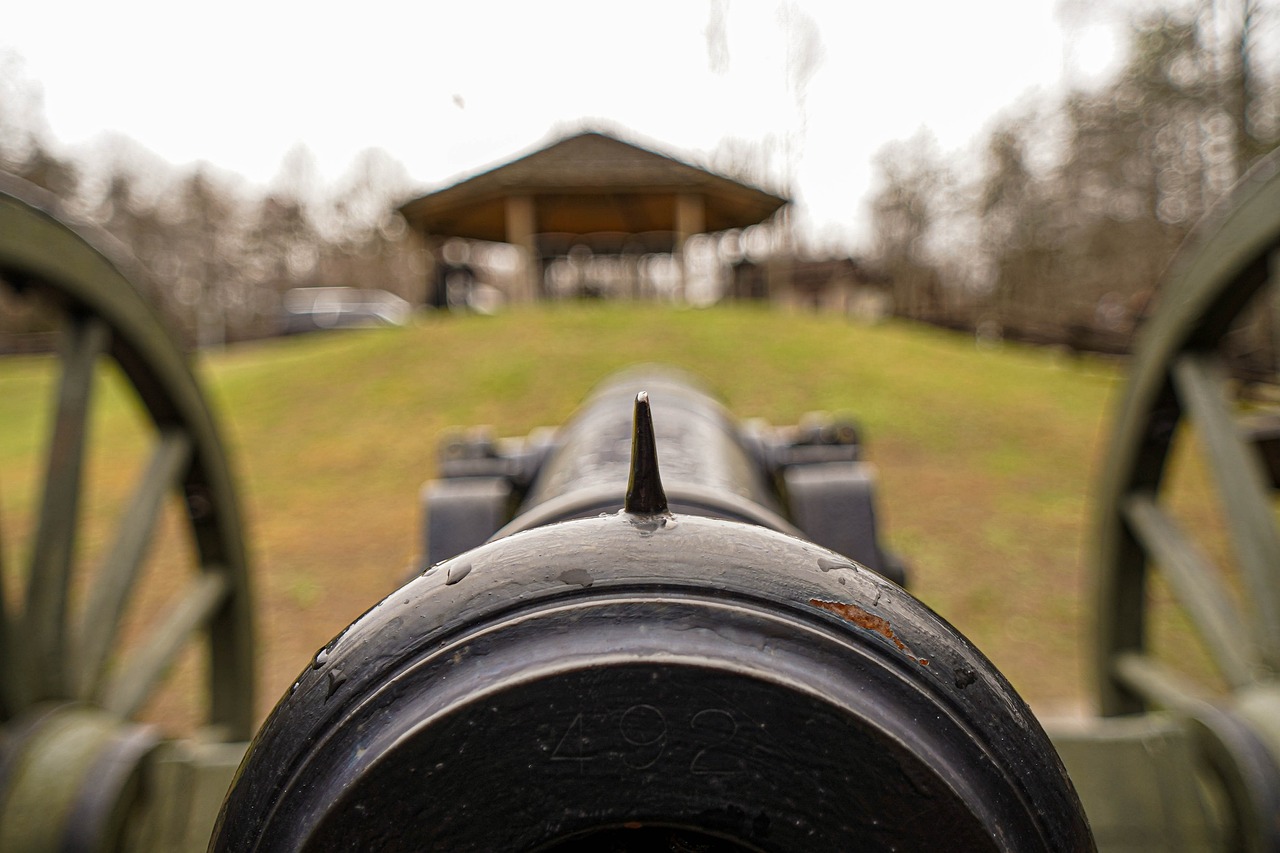
Jus ad Bellum: Criteria for Just Initiation
The concept of jus ad bellum, or the justice of going to war, is pivotal in determining whether the initiation of armed conflict can be morally justified. This framework lays down a set of criteria that must be met for a war to be deemed just. Imagine standing at a crossroads: one path leads to peace and the other to war. The decision to embark on the latter should not be taken lightly and must be supported by compelling reasons.
At its core, jus ad bellum emphasizes that a war can only be initiated under specific circumstances. These criteria include:
- Just Cause: There must be a legitimate reason for going to war, such as self-defense against aggression or protecting innocent lives.
- Right Intention: The intention behind the war should be noble, aiming for peace and justice rather than conquest or revenge.
- Legitimate Authority: Only duly constituted authorities have the right to declare war, ensuring that the decision is made by those accountable to the people.
- Probability of Success: There should be a reasonable chance of success in achieving the war’s objectives to avoid unnecessary loss of life.
- Proportionality: The anticipated benefits of waging war must outweigh the potential harms, ensuring that the response is not excessive.
- Last Resort: War should only be considered when all other avenues for resolution have been exhausted.
Each of these criteria serves as a moral compass, guiding leaders and nations in their decisions. However, applying these principles in real-world scenarios is often fraught with challenges. For instance, what constitutes a "just cause" can be subjective and influenced by political agendas. A nation may claim self-defense, but the motivations behind such claims can be murky.
Moreover, the right intention criterion is particularly complex. How do we measure the true intentions of a state? History is replete with examples where nations have masked their ambitions under the guise of humanitarian intervention. The line between altruism and self-interest can often blur, leaving us questioning the morality of the war itself.
As we delve deeper into the criteria of jus ad bellum, it becomes clear that the ethical landscape of war is anything but straightforward. Each criterion is interconnected, and the failure to meet one can taint the legitimacy of the entire conflict. For instance, if a war is declared by an authority lacking legitimacy, it raises immediate ethical concerns about the justification for that war.
In conclusion, the principles of jus ad bellum provide a critical framework for assessing the morality of initiating war. However, the application of these principles in practice reveals the complexities and nuances of ethical warfare. As we navigate through these moral dilemmas, it is essential to remember that the decision to go to war is not merely a political one; it is a profound ethical choice that impacts countless lives.

Jus in Bello: Conduct During War
The concept of Jus in Bello, or justice in war, is a fundamental aspect of Just War Theory that focuses on the ethical conduct of parties engaged in warfare. It raises critical questions about how combatants should behave during conflicts. Essentially, it’s not just about whether a war is justified, but also about how the war is fought. This principle emphasizes the necessity of distinguishing between combatants and non-combatants, ensuring that innocent lives are protected even amidst the chaos of battle.
One of the core tenets of Jus in Bello is the principle of proportionality. This principle dictates that the violence used in war must be proportional to the injury suffered. In simpler terms, if a military action is deemed necessary, the response must not exceed what is required to achieve a legitimate military objective. For instance, if a military base is attacked, the retaliation should not involve indiscriminate bombing of civilian areas, as this would be disproportionate and morally unacceptable.
Moreover, the principle of discrimination is another vital component of Jus in Bello. Combatants are required to distinguish between legitimate military targets and non-combatants, such as civilians and medical personnel. This is crucial because the loss of innocent lives can lead to long-lasting repercussions, not only for the affected families but also for the broader society. The ethical obligation to protect non-combatants is enshrined in international humanitarian law, which seeks to limit the effects of armed conflict.
However, the application of these principles is often fraught with challenges. In the fog of war, where decisions must be made rapidly and under extreme stress, distinguishing between combatants and non-combatants can be incredibly difficult. The rise of asymmetric warfare, where non-state actors engage in conflict using unconventional tactics, complicates matters further. Combatants may blend in with civilian populations, making it hard to determine who is a legitimate target. This reality raises questions about the effectiveness of Jus in Bello in modern warfare.
Additionally, the use of advanced military technologies, such as drone strikes, has introduced new ethical dilemmas. While drones can minimize risks to soldiers on the ground, they also raise concerns about civilian casualties and the detachment of operators who may be thousands of miles away from the battlefield. The ability to conduct warfare remotely can lead to a lack of accountability and a diminished sense of the human cost of conflict.
In conclusion, Jus in Bello serves as a critical framework for assessing the conduct of armed forces during war. It underscores the necessity of ethical considerations in warfare, emphasizing the need to protect innocent lives and maintain proportionality in military responses. As the nature of warfare evolves, the principles of Jus in Bello must be continually reassessed to ensure they remain relevant and effective in promoting ethical conduct in the face of modern challenges.
- What is Jus in Bello?
Jus in Bello refers to the set of principles that govern the ethical conduct of parties engaged in warfare, focusing on the distinction between combatants and non-combatants and ensuring proportionality in military actions.
- Why is proportionality important in warfare?
Proportionality is crucial because it ensures that military responses do not exceed what is necessary to achieve legitimate objectives, thereby protecting innocent lives and minimizing unnecessary suffering.
- How does modern technology affect Jus in Bello?
The use of advanced technologies like drones complicates the application of Jus in Bello, as they can lead to civilian casualties and create a disconnect between operators and the battlefield.

Contemporary Ethical Dilemmas
In today's world, the landscape of warfare has transformed dramatically, presenting us with a myriad of ethical dilemmas that challenge our traditional moral frameworks. With the advent of advanced technology, particularly in military applications, the nature of conflict has shifted from the battlefield to a more abstract realm. This raises critical questions: Are we prepared to grapple with the consequences of these innovations? How do we define the morality of actions taken from thousands of miles away?
One of the most pressing issues is the use of drone strikes. While they can minimize risk to military personnel, they also blur the lines of accountability and proportionality. Imagine a surgeon performing a delicate operation from a remote location—while the distance may ensure safety, it can also lead to a disconnection from the reality of the situation. This detachment can result in civilian casualties, igniting debates about the morality of such actions. Are we justifying the loss of innocent lives for the sake of efficiency?
Moreover, the rise of autonomous weapons has sparked intense discussions about moral agency. When machines are programmed to make life-and-death decisions, who is truly responsible for the outcomes? Is it the programmer, the military commander, or the government? This dilemma is akin to a chess game where the pieces can move independently, leaving the player to wonder if they can still claim victory when the game spirals out of control. As these technologies evolve, so too must our ethical considerations.
Another critical aspect of contemporary warfare is the impact of civilian casualties. In conflicts where the lines between combatants and non-combatants are increasingly blurred, the moral implications become complex. The principle of distinction, which mandates that combatants must differentiate between military targets and civilians, is often violated. This leads to a heartbreaking reality where innocent lives are lost, and communities are shattered. The emotional toll on families and societies raises the question: Can we ever justify a war that causes such profound suffering?
Furthermore, the psychological effects on soldiers who engage in modern warfare cannot be overlooked. Many service members return home grappling with moral injury, a term that describes the distress resulting from actions that contradict one’s moral beliefs. This phenomenon is not just a personal struggle; it reverberates through families and communities, leaving lasting scars. How do we support those who have faced such profound ethical conflicts in the line of duty?
As we navigate these contemporary ethical dilemmas, it becomes increasingly evident that our understanding of the morality of war is not static. It evolves with each technological advancement and every new conflict. The challenge lies in developing a robust ethical framework that can adapt to these changes while ensuring that we remain vigilant about the consequences of our actions. In this ever-changing landscape, we must ask ourselves: How can we honor the principles of justice and humanity in a world where the nature of war is continuously redefined?
- What are the main ethical dilemmas of contemporary warfare?
Contemporary warfare raises issues such as the use of drone strikes, the implications of autonomous weapons, civilian casualties, and the psychological effects on soldiers. - How do drone strikes challenge traditional notions of warfare?
Drone strikes can minimize risk to military personnel but may lead to civilian casualties and a disconnection from the realities of war. - What is moral injury, and how does it affect soldiers?
Moral injury refers to the psychological distress experienced by soldiers who struggle with actions that conflict with their moral beliefs. - How can we ensure ethical conduct in modern warfare?
Developing a robust ethical framework that adapts to technological advancements and prioritizes the principles of justice and humanity is essential.
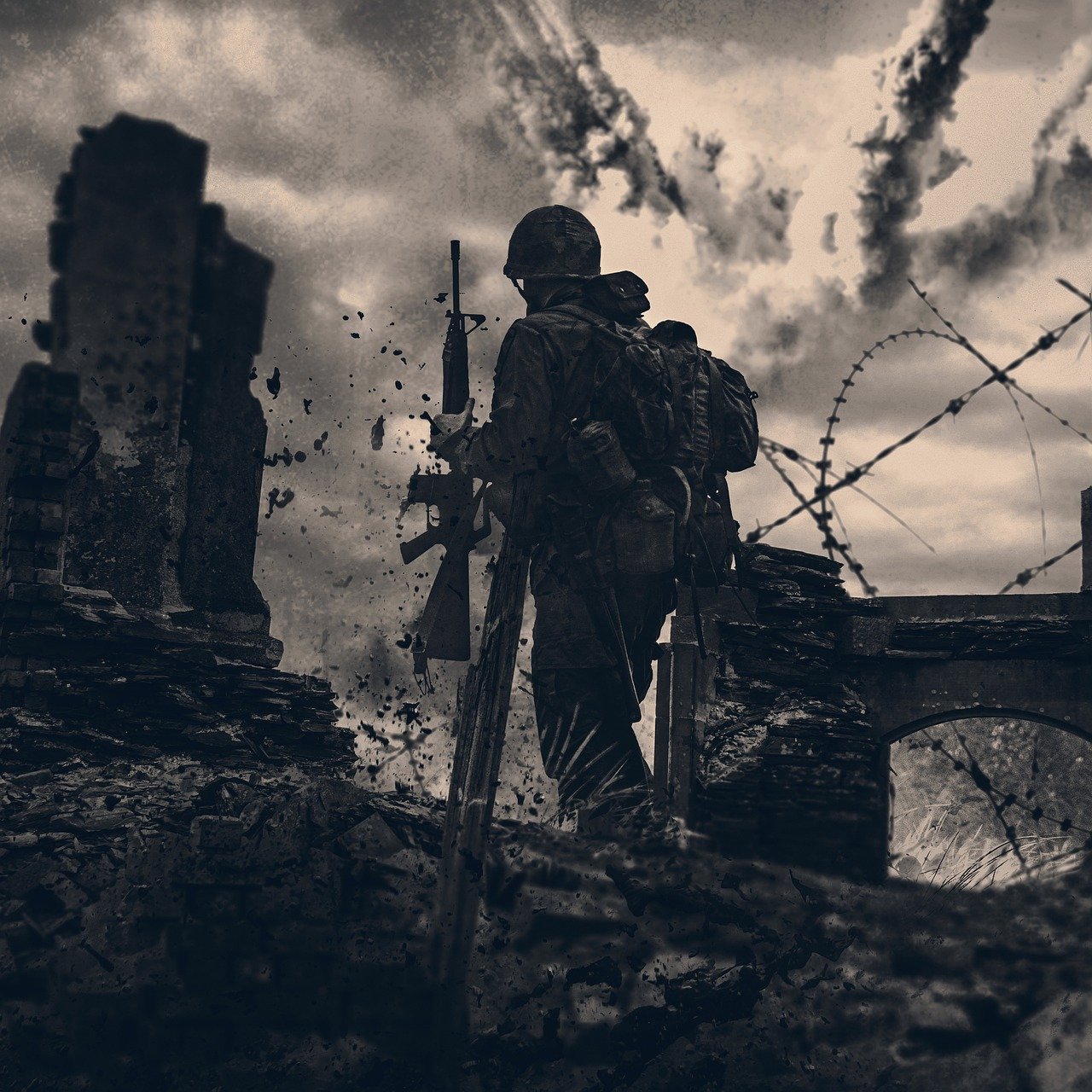
Public Perception and Morality of War
When we think about war, it’s easy to imagine soldiers on the front lines, but what about the unseen battles that rage in our minds? The morality of war isn’t just a philosophical debate; it's a living, breathing conversation shaped by our collective experiences and perceptions. Public opinion plays a critical role in shaping how we view the ethics of armed conflict. Factors such as media portrayal, political discourse, and cultural narratives are like the threads in a tapestry, weaving together a complex picture of what we believe is right or wrong in times of war.
Media coverage, for instance, can act as a double-edged sword. On one side, it informs the public about the realities of conflict, but on the other, it can skew perceptions based on sensationalism or bias. When a news outlet focuses on the heroism of soldiers without showing the destruction and devastation faced by civilians, it creates a skewed narrative that can glorify war. This raises the question: Are we truly understanding the full impact of war, or are we just consuming a curated version of reality?
Moreover, the language used in media can significantly influence public sentiment. Terms like "collateral damage" can desensitize the audience to the human cost of military actions. When we hear that term, do we stop to think about the lives behind those words? It’s a chilling reminder that the morality of war is often lost in translation, buried under euphemisms and political rhetoric.
In addition to media influence, cultural narratives play a pivotal role in shaping our moral judgments about war. Different societies have their own stories, heroes, and myths surrounding conflict that set the stage for how we perceive military actions. For example, in some cultures, war is seen as a noble endeavor, a rite of passage that must be honored. In others, it’s viewed as a tragic failure of diplomacy. These narratives can create a framework for understanding what is considered justifiable in warfare.
To illustrate how public perception can vary, consider the following table that outlines different cultural perspectives on war:
| Cultural Perspective | View on War | Influencing Factors |
|---|---|---|
| Western Societies | Often romanticized, seen as a necessary evil. | Media, history, political leaders. |
| Eastern Societies | Frequently viewed as a tragic failure of humanity. | Philosophical teachings, historical conflicts. |
| Indigenous Cultures | War is sometimes seen as a disruption of harmony. | Spiritual beliefs, community values. |
As we navigate these complex waters, it’s essential to recognize that public perception isn't static; it evolves with each new conflict, each new piece of information. The discussions around the morality of war must also adapt to include voices that have historically been marginalized, such as those of civilians caught in the crossfire. After all, the true morality of war is not just about the actions of those who fight but also about the lives of those affected by it.
So, how do we reconcile our views on the morality of war with the realities we see? It requires a willingness to engage in difficult conversations, to question our assumptions, and to seek out a more nuanced understanding of what it means to wage war ethically. Only then can we hope to make sense of the moral dilemmas that continue to confound us.
- What is the main ethical dilemma surrounding war? The main ethical dilemma often revolves around the justification of war and the consequences it has on innocent lives.
- How does media influence public perception of war? Media shapes public perception by highlighting certain narratives, often glorifying military actions while downplaying civilian suffering.
- What role do cultural narratives play in understanding war? Cultural narratives provide a framework for how societies view war, impacting moral judgments and collective memory.

The Role of Media in Shaping Views
The media plays an undeniably crucial role in shaping public perception of war, acting as both a mirror and a molder of societal attitudes. Have you ever stopped to think about how the news you consume can influence your views on military actions? From television broadcasts to social media feeds, the portrayal of war can either glorify or vilify the actions taken by governments and military forces. The way in which conflicts are reported can significantly affect public sentiment, swaying opinions and even influencing political decisions.
Consider this: when a war is depicted as a noble cause, with heroic soldiers fighting for freedom and justice, public support tends to surge. Conversely, when media coverage focuses on civilian casualties and the destruction of communities, it can lead to widespread condemnation and calls for accountability. This duality of representation is powerful, as it shapes not only individual beliefs but also the collective consciousness.
Moreover, the rise of digital media has transformed how war is reported and consumed. Social media platforms allow for real-time updates, citizen journalism, and a multitude of perspectives. However, this democratization of information comes with its own set of challenges. Misinformation can spread like wildfire, leading to skewed perceptions of conflict. For instance, a viral video showing a specific event can be taken out of context, leading to a misinterpretation of the situation on the ground.
To illustrate the impact of media on public perception, let’s take a look at a few key factors:
- Framing: How a story is framed can dramatically change its reception. For example, referring to a military operation as a "liberation" versus an "invasion" can evoke different emotional responses.
- Language: The choice of words matters. Describing combatants as "terrorists" versus "freedom fighters" creates a narrative that can polarize opinions.
- Visual Imagery: Graphic images of war can elicit strong emotional reactions, often leading to increased empathy for victims or outrage against aggressors.
Ultimately, the media does not merely report on war; it actively participates in the construction of its morality. By choosing which stories to tell and how to tell them, the media shapes our understanding of what is just and unjust in the context of armed conflict. This raises an important question: can we ever fully trust the narratives presented to us? As consumers of media, it is essential to approach war reporting with a critical eye, recognizing the biases that may exist and seeking out diverse perspectives to form a more comprehensive understanding.
- How does media bias affect public perception of war?
Media bias can lead to skewed representations of conflicts, influencing how the public perceives the morality of military actions. - What role do social media platforms play in war reporting?
Social media allows for real-time updates and diverse perspectives, but it also poses risks of misinformation. - Can we trust all media sources when it comes to war coverage?
It's important to critically evaluate media sources and seek out multiple viewpoints to form a well-rounded understanding of conflicts.

Cultural Narratives and Their Impact
The way we perceive war is often deeply intertwined with the cultural narratives that surround it. These narratives shape our understanding and moral judgments about armed conflict, influencing everything from public opinion to policy decisions. Think about it: every story we hear, every movie we watch, and every news report we consume contributes to a collective narrative that colors our perception of war. For instance, films like *Saving Private Ryan* or *Full Metal Jacket* don't just entertain; they also frame how we think about soldiers, heroism, and the brutality of combat. They create a shared understanding that can either glorify or vilify the act of war.
Moreover, cultural narratives are not static; they evolve over time, reflecting changes in societal values and historical contexts. For example, the portrayal of World War II has shifted dramatically since the end of the conflict. Initially celebrated as a 'just war' against tyranny, later reflections have also highlighted the complexities of moral ambiguity in the decisions made by leaders and soldiers alike. This evolution can lead to a reexamination of past conflicts and the moral lessons we draw from them.
One significant aspect of cultural narratives is their ability to normalize certain views about war. When media outlets continuously depict military intervention as a necessary response to threats, they can shape public perception to align with a more militaristic worldview. In contrast, narratives that emphasize the humanitarian impacts of war, such as civilian casualties and displaced populations, can foster a more critical view of military actions. This duality can create a cognitive dissonance within the public, as people struggle to reconcile the glorification of war with the grim realities it often produces.
Another factor to consider is the role of national identity in shaping cultural narratives around war. In many countries, military conflicts are intertwined with national pride and identity. The stories told about past wars can serve to unite a populace, reinforcing a sense of belonging and shared purpose. However, this can also lead to a dangerous oversimplification of complex issues, where dissenting voices are marginalized or labeled as unpatriotic. The narratives that emerge from these conflicts can either promote healing and understanding or exacerbate divisions and tensions.
To illustrate the impact of cultural narratives, consider the following table that outlines key historical conflicts and their associated narratives:
| Conflict | Cultural Narrative |
|---|---|
| World War I | Heroism and sacrifice in the face of overwhelming odds. |
| Vietnam War | Anti-war sentiment and questioning authority. |
| Gulf War | Precision warfare and liberation of oppressed peoples. |
| War on Terror | Defending freedom against existential threats. |
As we navigate the complexities of modern warfare, it's crucial to critically engage with these cultural narratives. They not only influence our perceptions but also have real-world implications for how wars are conducted and justified. By understanding the narratives at play, we can better grasp the moral dilemmas that arise in the context of war and work towards a more nuanced understanding of what it means to engage in armed conflict.
- What are cultural narratives? Cultural narratives are the stories and frameworks through which societies understand events, including wars. They shape perceptions and moral judgments.
- How do cultural narratives influence public opinion on war? They can normalize certain viewpoints, either glorifying military actions or highlighting humanitarian concerns, thus affecting how the public perceives and reacts to conflicts.
- Can cultural narratives change over time? Yes, cultural narratives evolve based on societal values, historical context, and collective memory, leading to different interpretations of past conflicts.
Frequently Asked Questions
- What is the morality of war?
The morality of war refers to the ethical considerations and principles that govern the justification and conduct of warfare. It involves complex dilemmas about what makes a war just or unjust, focusing on factors like the reasons for going to war and how it is fought.
- What is Just War Theory?
Just War Theory is a philosophical framework that outlines the conditions under which a war can be considered morally justified. It includes principles such as jus ad bellum (the justice of going to war) and jus in bello (the justice of conduct within war), helping to assess the ethical implications of armed conflict.
- What are the key principles of Just War Theory?
The key principles include:
- Jus ad Bellum: Criteria for just initiation of war, such as just cause, legitimate authority, and proportionality.
- Jus in Bello: Ethical conduct during war, emphasizing discrimination between combatants and non-combatants and proportional use of force.
- How does public perception influence the morality of war?
Public perception plays a crucial role in shaping attitudes towards war. Media coverage, political rhetoric, and cultural narratives can significantly affect how people view the morality of military actions, often swaying opinions and influencing political decisions.
- What contemporary issues complicate the morality of war?
Modern warfare introduces unique ethical challenges, such as the use of technology in combat, drone strikes, and the impact on civilian populations. These issues prompt a reevaluation of traditional moral frameworks, as they raise questions about accountability and the consequences of military actions.
- How do cultural narratives affect moral judgments about war?
Cultural narratives shape collective memory and societal values, influencing how communities perceive and judge the morality of war. These narratives can complicate discussions about ethics in conflict, often leading to differing opinions based on historical context and cultural background.

